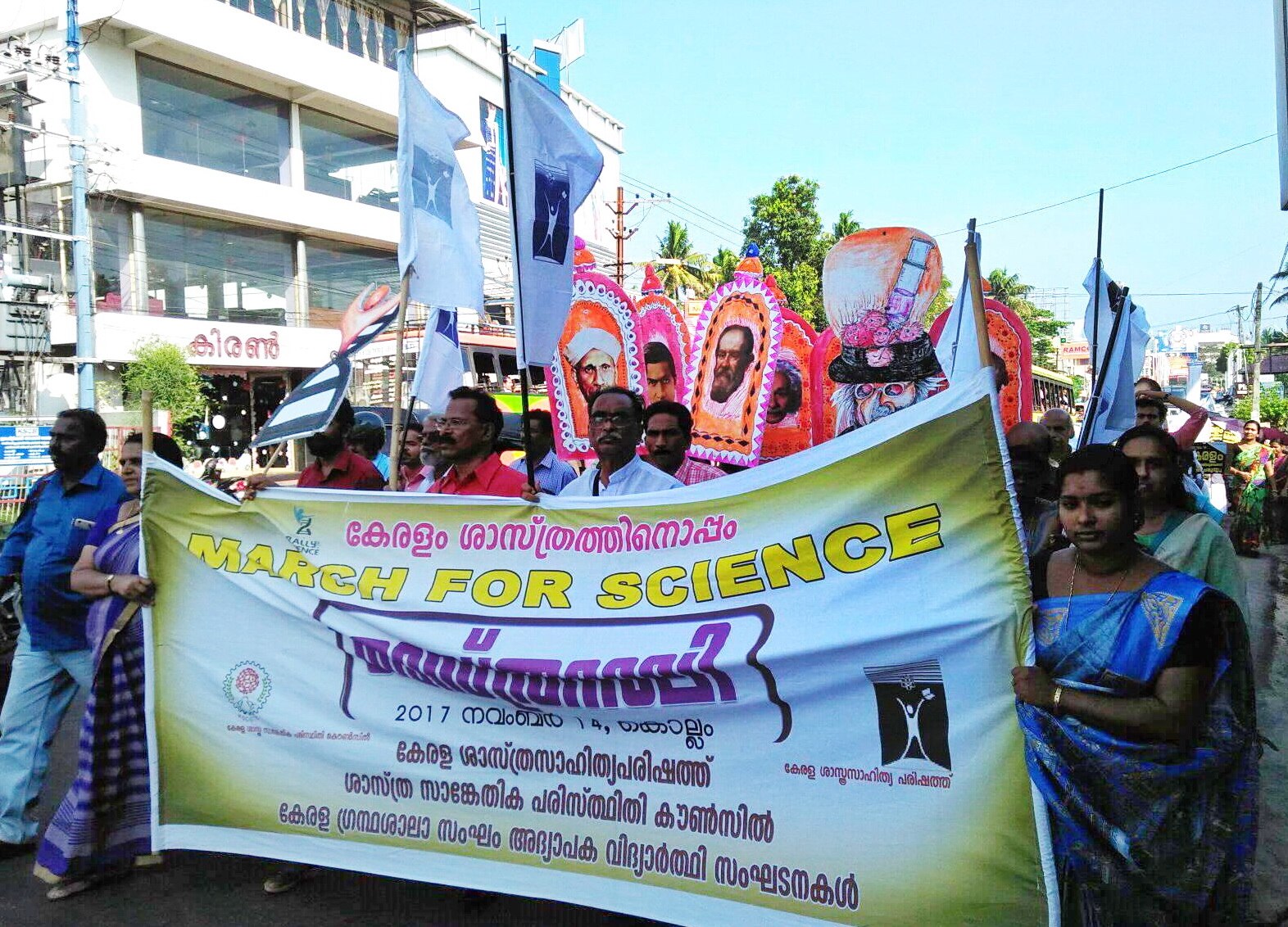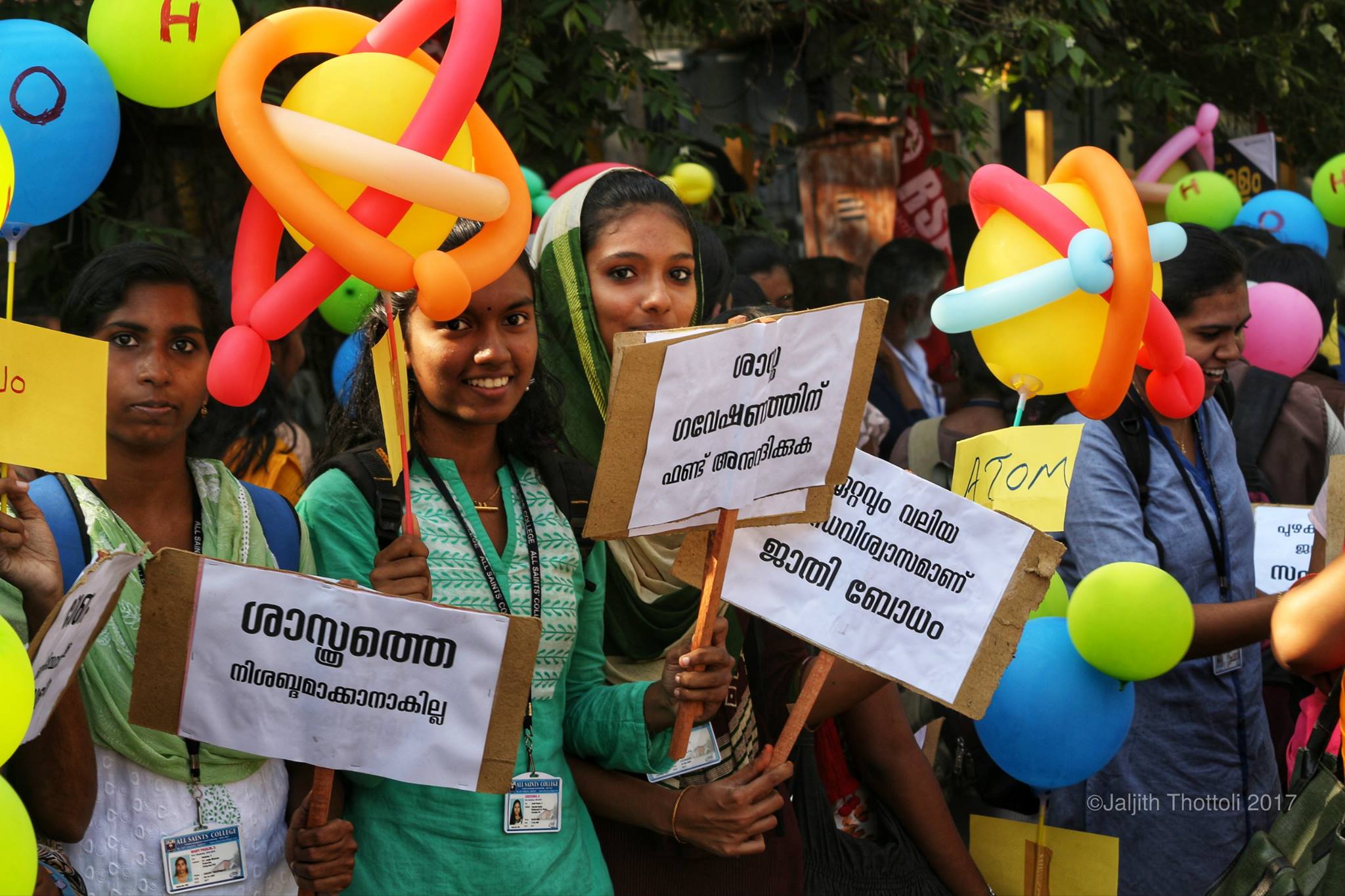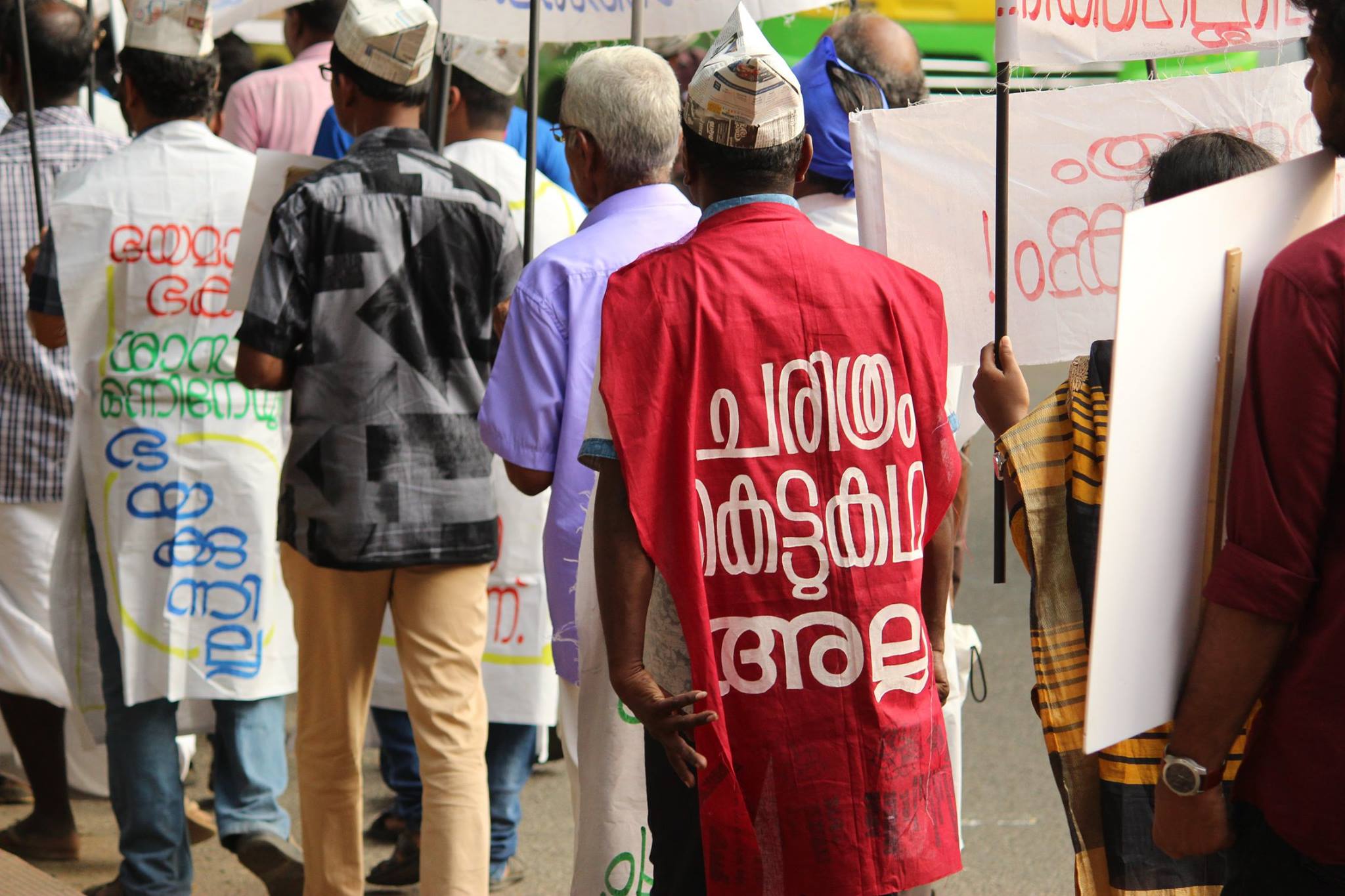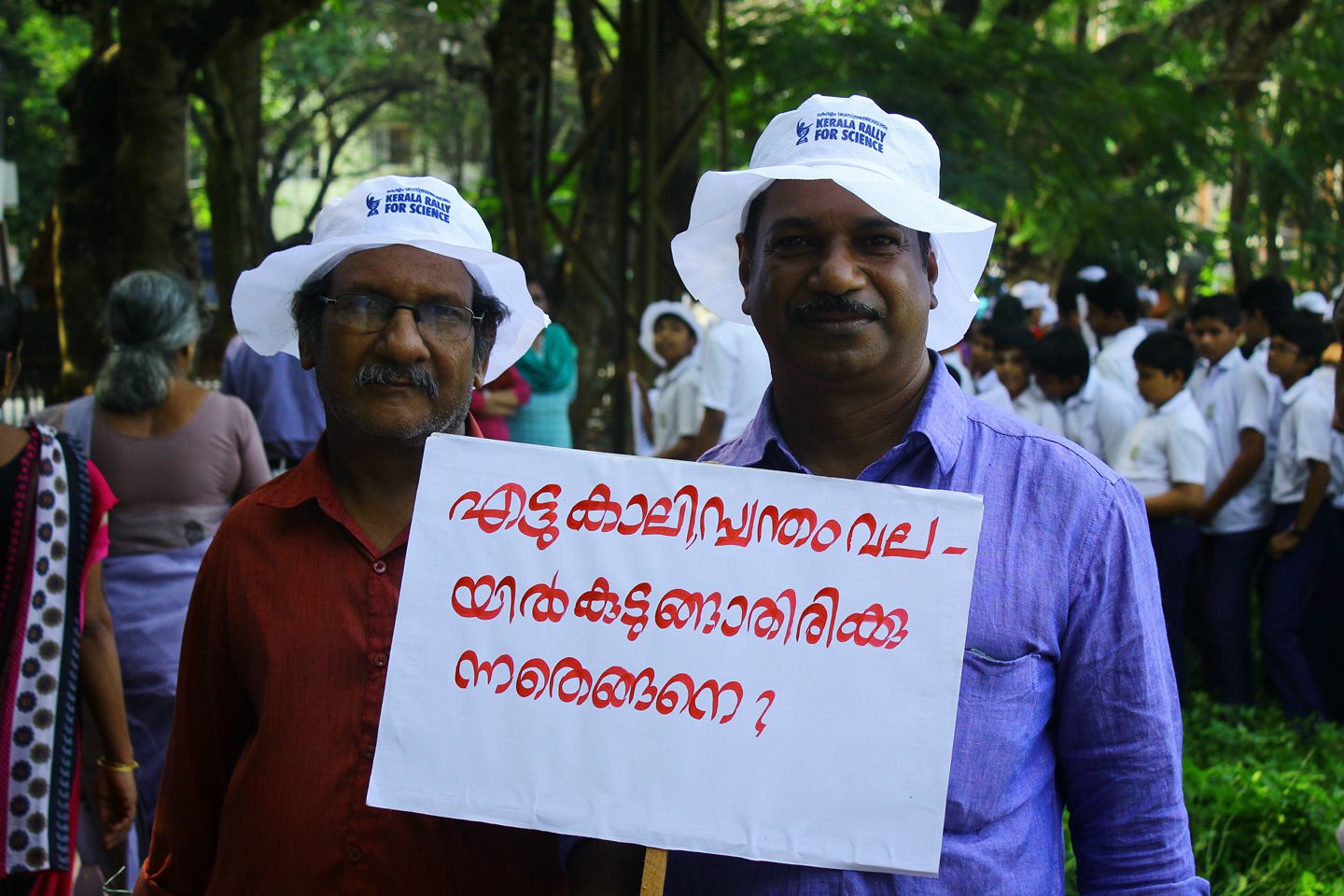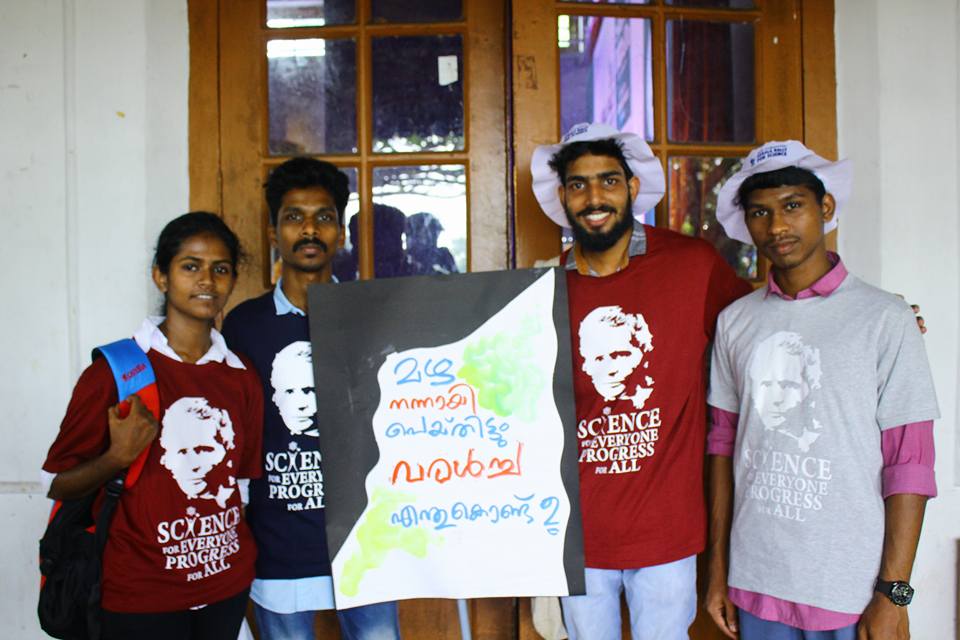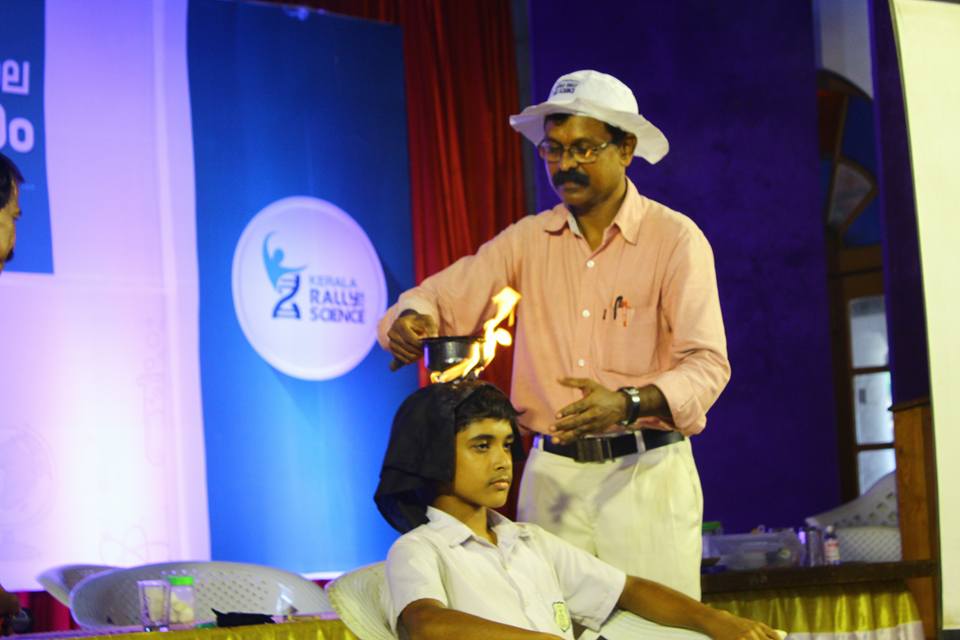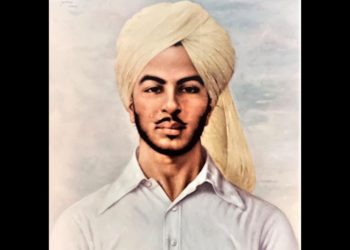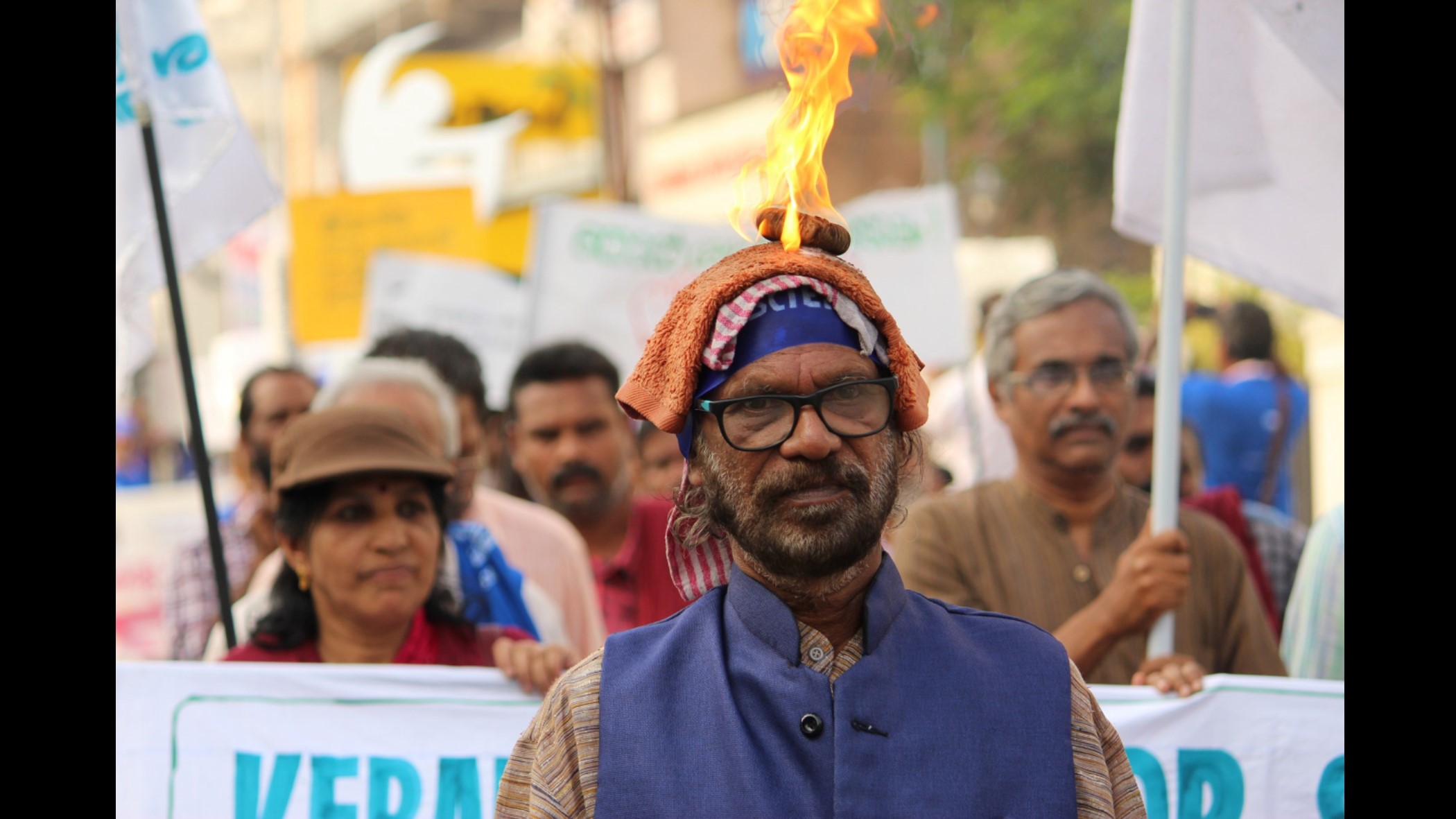
The Kerala Rally for Science, a week-long event consisting of programmes in support of science, concluded on Tuesday with colourful rallies and public meetings in the 14 district headquarters in the State.
Organised by the Kerala State Council for Science, Technology & Environment, the Kerala Sasthra Sahithya Parishad (KSSP) and the State Library Council on the occasion of the Scientific Temper week from 7 to 14 November, the Rally For Science witnessed the participation of thousands of people across Kerala.
The Rally was held in the context of the promotion of obscurantism, psuedo-science and superstition by political leaders and organisations linked to the RSS-BJP, and by government institutions in different parts of India.
The State-level valedictory programme of the Rally was inaugurated by Chief Minister Pinarayi Vijayan at Kozhikode. "Even people who are holding responsible constitutional positions are trying to spread unscientific ideas," the Chief Minister said.
"What happened in December 2014 in Mumbai is a major example. The person who holds the most important constitutional position in India claimed that [the story of] Ganesh [in Hindu mythology] is proof of the existence of plastic surgery in ancient India," Vijayan said, referring to Prime Minister Narendra Modi's controversial remarks.
Referring to Satya Pal Singh, the Union Minister of State for Human Resource Development, he said, "Even little kids know that aeroplane was invented by the Wright brothers. But a prominent person sitting in a constitutional position says that pushpaka vimana is the first aeroplane! The tendency to disguise baseless claims as scientific facts is increasing."
"Scientific temper should become the common sense in society. Its basis is the willingness to question everything," he said.
A large number of programmes were organised in connection with the event. Classes and presentations on 'The Cosmos, Life and Climate Change' and 'Women in Science' symposia on women scientists were held in most colleges in the State. Augusta Ada King-Noel, Agnes Pockels, Anna Mani, Asima Chatterjee, Gerty Theresa Cori, Harriet Brooks, Irène Joliot-Curie, Jocelyn Bell Burnell, Rita Levi-Montalcini, Vera Rubin, B Vijayalakshmi and Kamal Ranadive were among the women scientists whose work and achievements were highlighted as part of the event.
Many research institutions and laboratories in various colleges were opened up for the common people to visit as part of ‘Science Window’, while school children were taken to planetariums and scientific institutions as part of ‘Science Tours’.
Conventions of people working in various fields were held in support of science, such as ‘Artists in Support of Science’, ‘Nurses in Support of Science’ and ‘Singers in Support of Science’.
Several videos on the importance of vaccination, and interviews with scientists were produced and circulated online as part of the campaign. Witty posters countering pseudo-scientific and superstitious claims were widely shared in social media platforms.
Many of the programmes such as the Campus Science Festival will continue throughout the year.
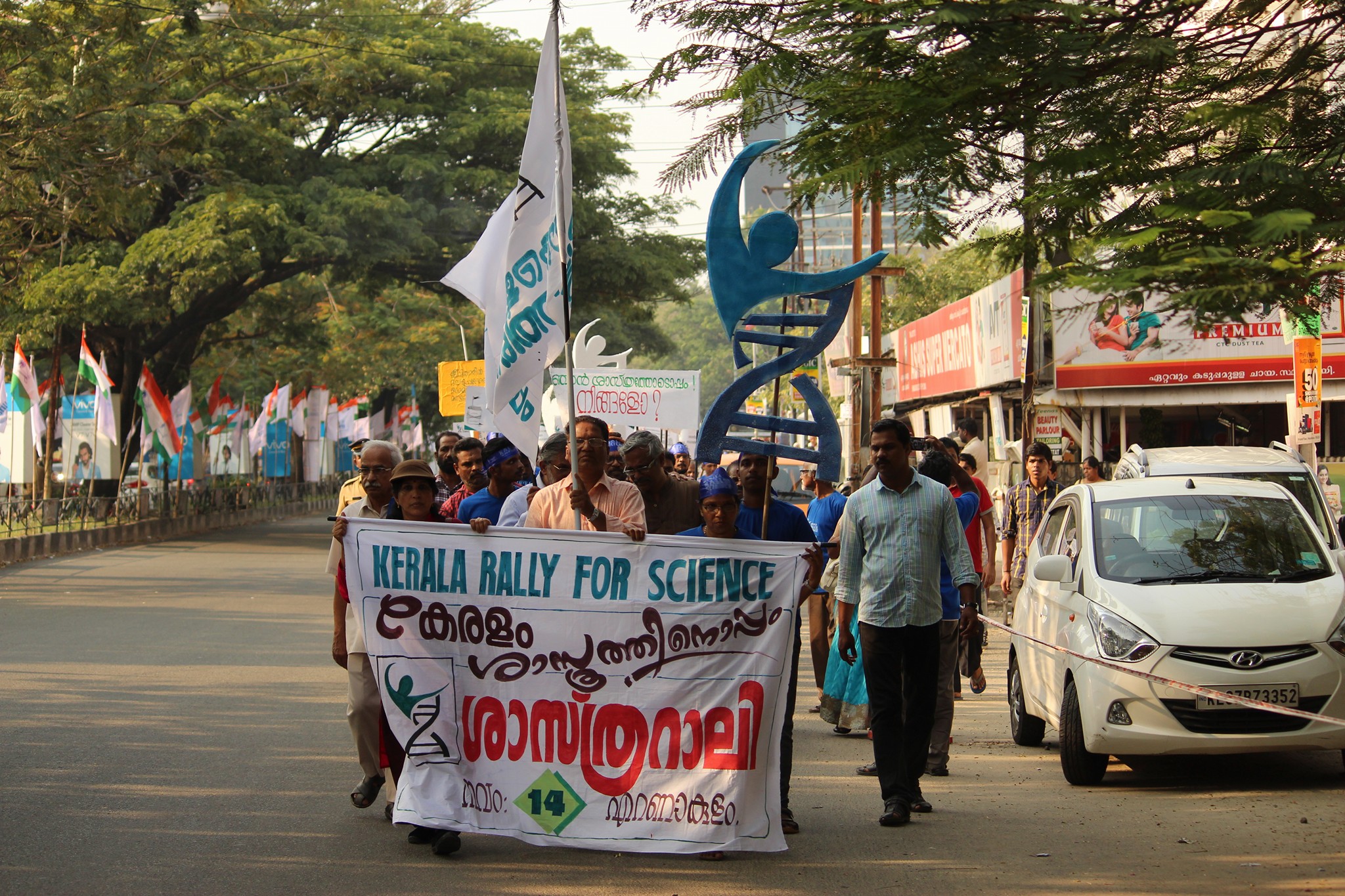
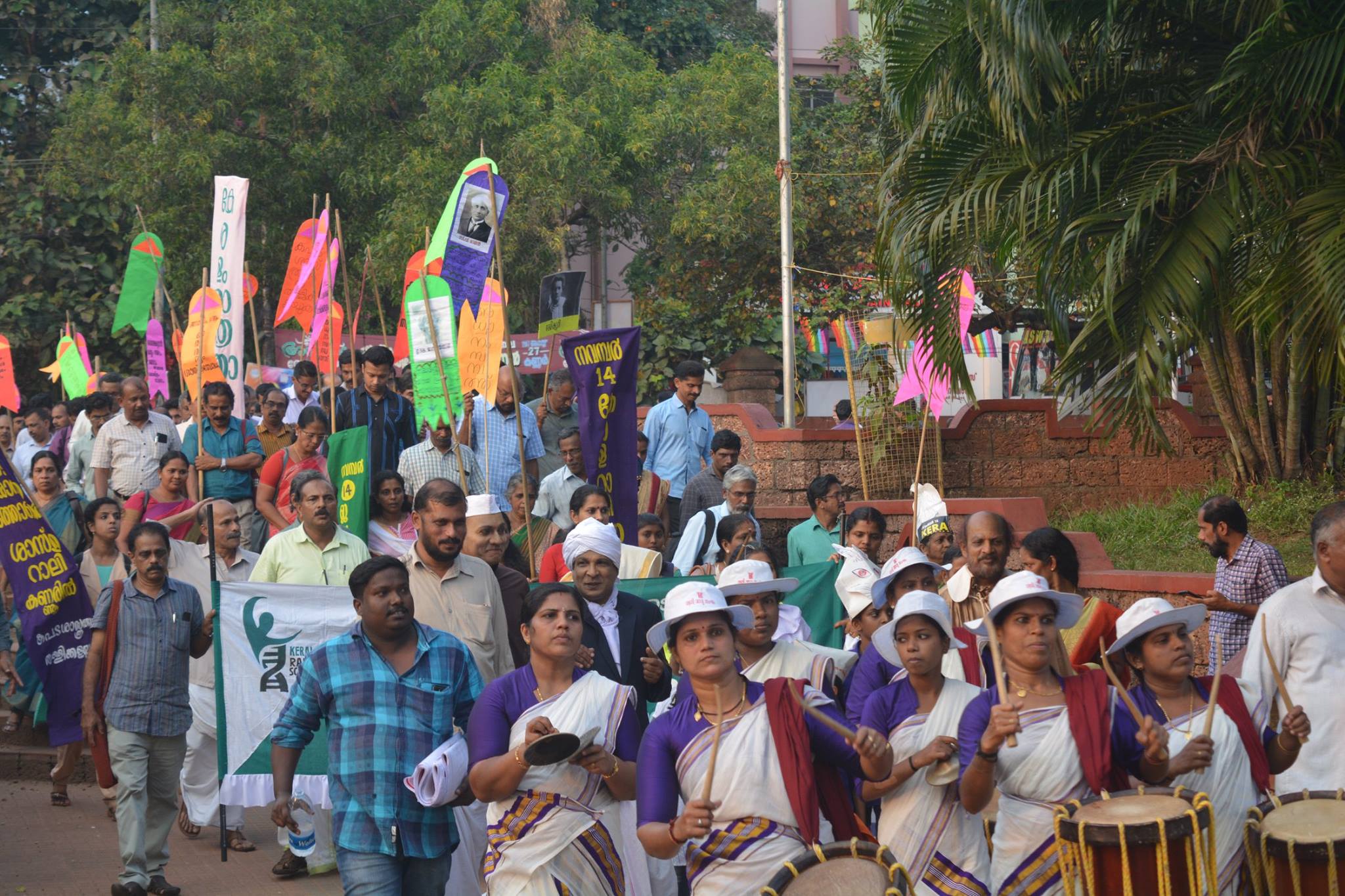
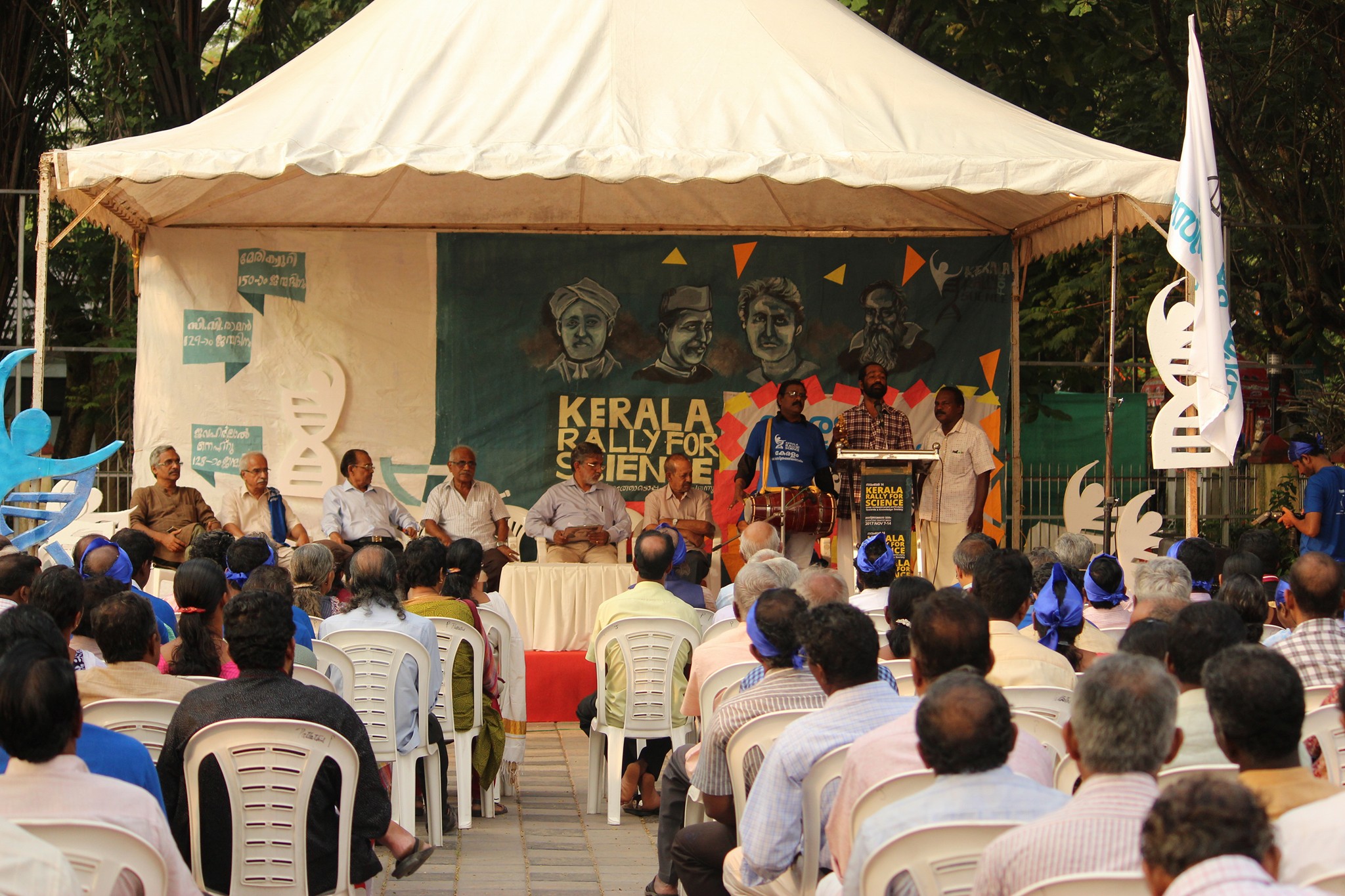
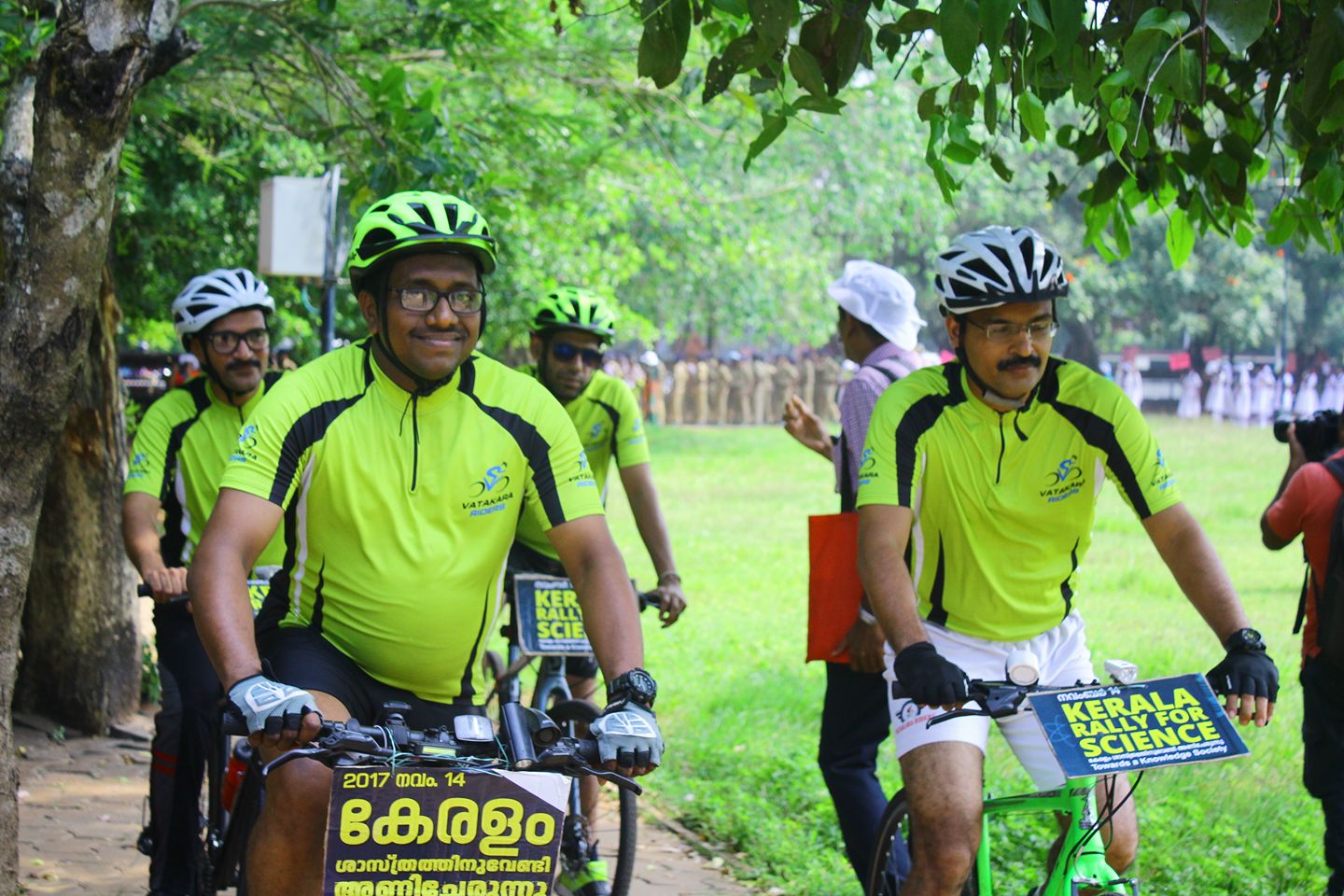
7 November 2017 marked the 150th birthday of the renowned physicist-chemist Marie Curie, and coincided with the birthday of the great Indian scientist CV Raman. November 14 is the birthday of India's first Prime Minister Jawaharlal Nehru, who played a leading role in building India's scientific institutions and in spreading scientific temper in society.
Earlier on 22 April this year, the March for Science was held in more than 600 towns and cities across the world, in protest against cuts to public spending on scientific research and research institutions, and against the rising threat to science-based public policy formulation. Similarly on 9 August, scientists, researchers and students in India took part in the India March for Science in over 30 cities in the country, voicing their concern about cuts in research funding and the propagation of pseudo-scientific ideas in India.

